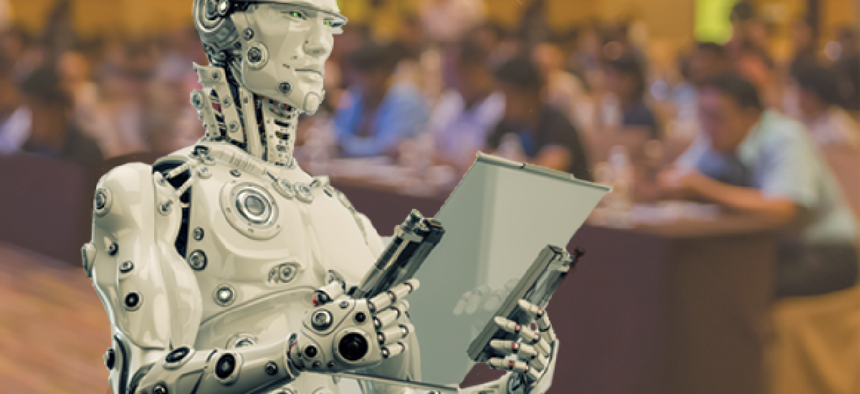Congress gets up to speed on AI


Connecting state and local government leaders
A senate subcommittee heard from artificial intelligence experts on the challenges and potential of the technology.
A panel of experts testified this week in what was billed as the first congressional hearing on artificial intelligence.
The Nov. 30 hearing before the Senate Subcommittee on Space, Science, and Competitiveness brought four prominent voices within the AI field to testify and answer questions from the committee, which is chaired by Sen. Ted Cruz (R-Texas).
In his opening statement, Cruz said AI could prove to be beneficial to the nation’s economy, especially considering the recent advancements in the science. But as China and other countries begin to invest in AI, he said, it's vital that the United States “remain a global leader” in the field.
“Basic research is happening in industry,” said Greg Brockman, the cofounder and CTO at OpenAI. “But we cannot do too much of it.” The government, he said, should fund AI research, promote competitions and help lead the conversation with academia and the private sector on the ethical, security and privacy issues raised by AI.
Panel members agreed that the current workforce is inadequate for the demand coming from industry. Andrew Moore, the dean of the School of Computer Science at Carnegie Mellon University, said that “what keeps me awake at night is the talent war.”
Anyone with the ability to work in the AI industry, which includes professors and students who studied AI, are being offered large contracts. This means the most highly qualified people are going to internet companies that can afford those big salaries, and organizations like government agencies are left behind. To get the talent the field needs, Moore suggested an emphasis on STEM education starting in elementary school.
Cruz also asked the panel to discuss some of the potential dangers surrounding the technology.
“How concerned should we be about the general prospects of AI, or to ask the question differently: In a nod to Terminator, does anyone know when Skynet goes online?” Cruz asked, referring to the AI enabled antagonist of the Terminator series.
There is a lot of hyperbole surrounding AI, especially in Hollywood, said Eric Horvitz, the interim co-chair for the Partnership on Artificial Intelligence and the Managing Director of Microsoft’s Research Lab. Horvitz said the capabilities demonstrated by Skynet are nowhere near possible with current technology. But answering some of the basic ethical questions today – such as how to stop systems from updating themselves or changing their programing -- will help define the ethical aspects of the technology as it advances.




